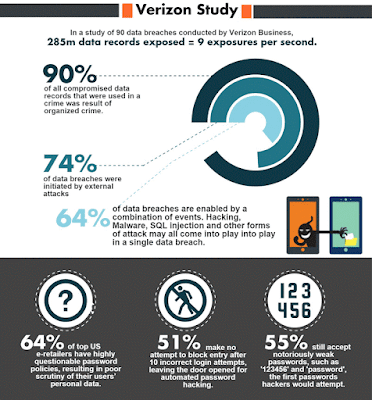A lot of people reports incidents on a daily basis of an online fraud or getting hacked. Companies are struggling over cyber attacks and without the safety awareness is predicted to rise.
Picture Courtesy:www.techweekeurope.co.uk
In today’s technological world, nothing can beat the comfort of online shopping, but even if you’re sitting at your home far away from the madding crowd, it does not mean that you are completely safe as there might be wily eyes on you, awaiting a chance to rip-off your hard-earned money. It’s important to follow certain safety precautions while shopping online to stay protected you from cybercrime.
Here’s a safety checklist for shopping online.
1. Always Trust your instincts
If you have a bad feeling about buying or bidding on an item over the website, or if you feel pressurized to place your order instantly, maybe you shouldn’t.
2. Shop over secure internet connection
Always check for security software indicator before giving your payment information
Picture Courtesy:madelastonlineshopping.files.wordpress.com
Your Smartphone Is Not As Protected Against Online Threats As Your Desktop Is
3. Read the website’s privacy policy
Reputable companies are open about how they gather data from you and what are they going to do with it. In privacy policy, companies set their guidelines on the treatment of your personal information.
4. Double-check pricing before buying
Be suspicious of prices if they look too good to be true. Also consider carefully, you may be paying too much for an item, specifically if you’re bidding an item through an auction site.
5. Use safe payment options
While doing online shopping, Credit cards can be the safer choice.
6. Give information as little as possible
Beware of nosy questions who are seeking personal information. For instance, an online retailer who is trustworthy won’t ask for unnecessary financial or personal details.
7. Be extra careful if you’re using a mobile device for shopping
Nowadays, Smart-phones can do everything a desktop computer can do, but that doesn’t mean they are protected as against threats as your computer. Most mobile phones are not supplied with the anti-virus software that you usually have on your computer, so it’s easier for hackers or criminals to get malware downloaded on your mobile device that might help them steal the personal information the personal information.
Picture Courtesy: www.frukmagazine.com
As Per Report From Verizon, It Takes Only 82 Seconds For Anybody To Become Victim And Get Duped
8. Make sure you use encrypted order checkout area
Before you checking-out anything from a website, must verify if the vendor has encrypted the payment page/form.
9. Use strong passwords
Often observed that we give least attention to most critical security steps – our passwords. Passwords are the best security defenses that we have, but if they are not strongly created, a hacker can easily guess them.
Picture Courtesy: skeygo.meblogindex
10. Install a phishing filter
There are numerous phishing filters, for example; SmartScreen Filter available in Internet Explorer, which helps in protect you from phishing websites by giving a warning to you when they detect a distrustful website.
11. Always use https://, to be secure
Secured website always has https:// instead of http:// in the URL.
12. Do your research
When exploring a new website for buying, read reviews to check if other consumers have shared a negative or positive experience with the website.
Picture Courtesy: skeygo.meblogindex
While Using A Public Or Shared Computer, Delete Your Browsing History To Avoid Strangers To Know Who Use The Computer Prior To You
13. Do not use a public computer
Computers save information in “cache” memory to speed up your internet experience. If you are using a public or a shared computer, always delete your browsing history and cache memory.
14. Check your bank/card statements every month
To ensure that no fraudulent charges gets posted to your bank accounts, check your bank and credit card statements every month.
15. Print or save a copy of your orders
It’s always a best idea to keep documentation of your every online purchase. Most of the retailers will send you webpage or an email referring a confirmation of your purchase; this page includes a confirmation number and a purchase receipt. You can take a print-screen or save the online page to keep it until you receive your product.











